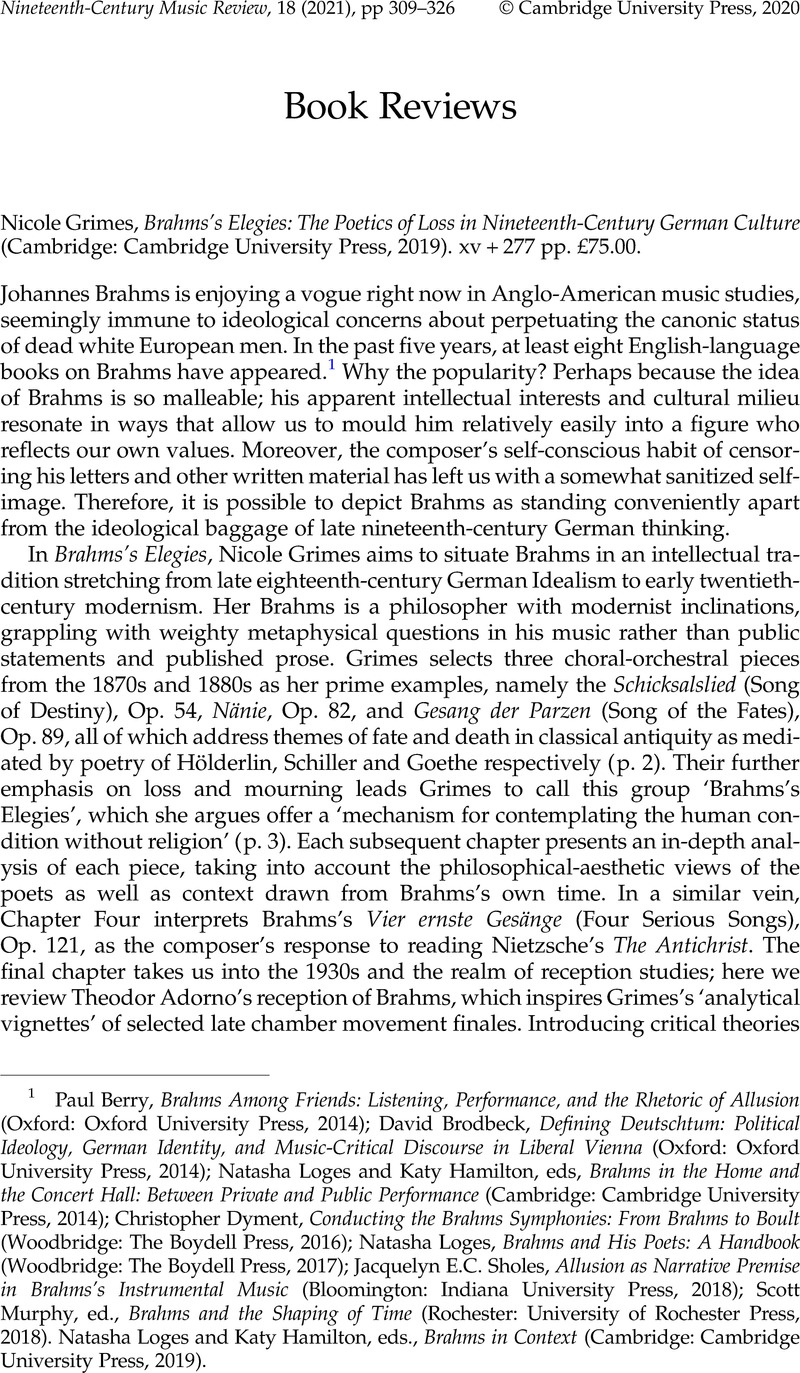No CrossRef data available.
Published online by Cambridge University Press: 18 August 2020

1 Berry, Paul, Brahms Among Friends: Listening, Performance, and the Rhetoric of Allusion (Oxford: Oxford University Press, 2014)CrossRefGoogle Scholar; Brodbeck, David, Defining Deutschtum: Political Ideology, German Identity, and Music-Critical Discourse in Liberal Vienna (Oxford: Oxford University Press, 2014)CrossRefGoogle Scholar; Loges, Natasha and Hamilton, Katy, eds, Brahms in the Home and the Concert Hall: Between Private and Public Performance (Cambridge: Cambridge University Press, 2014)Google Scholar; Dyment, Christopher, Conducting the Brahms Symphonies: From Brahms to Boult (Woodbridge: The Boydell Press, 2016)CrossRefGoogle Scholar; Loges, Natasha, Brahms and His Poets: A Handbook (Woodbridge: The Boydell Press, 2017)CrossRefGoogle Scholar; Sholes, Jacquelyn E.C., Allusion as Narrative Premise in Brahms's Instrumental Music (Bloomington: Indiana University Press, 2018)CrossRefGoogle Scholar; Murphy, Scott, ed., Brahms and the Shaping of Time (Rochester: University of Rochester Press, 2018)CrossRefGoogle Scholar. Loges, Natasha and Hamilton, Katy, eds., Brahms in Context (Cambridge: Cambridge University Press, 2019)CrossRefGoogle Scholar.
2 Grimes implies that Brahms was a non-believer, thus revising Daniel Beller-McKenna's recent exploration of Brahms's Protestant religiosity in Brahms and the German Spirit (Cambridge, MA: Harvard University Press, 2004)Google Scholar.
3 James A. John, ‘Johannes Brahms's Nänie, Op. 82: A Study in Context and Content’ (DMA diss., Eastman School of Music, 2001): 103−5.
4 There are uncited author mentions in text (pp. 81, 125), an author name given incorrectly in text (p. 102), citing of an unpublished master's thesis in an argumentative ‘I’ statement (p. 154). D flat is called ‘the flat submediant of Fb’ (p. 156), different translations are offered for the same German text (pp. 125, 161), etc.
5 Frederick Beiser understands Romanticism to be subsumed under Idealism; see, for example, discussion in Beiser, , “Romanticism and Idealism”, in The Relevance of Romanticism: Essays on German Romantic Philosophy, ed. Nassar, Dalia (Oxford: Oxford University Press, 2014): 30−46CrossRefGoogle Scholar.